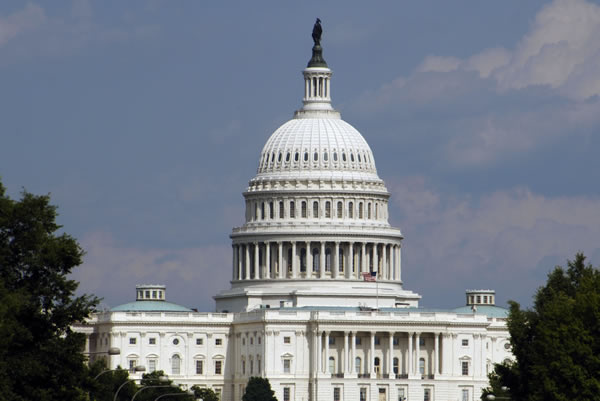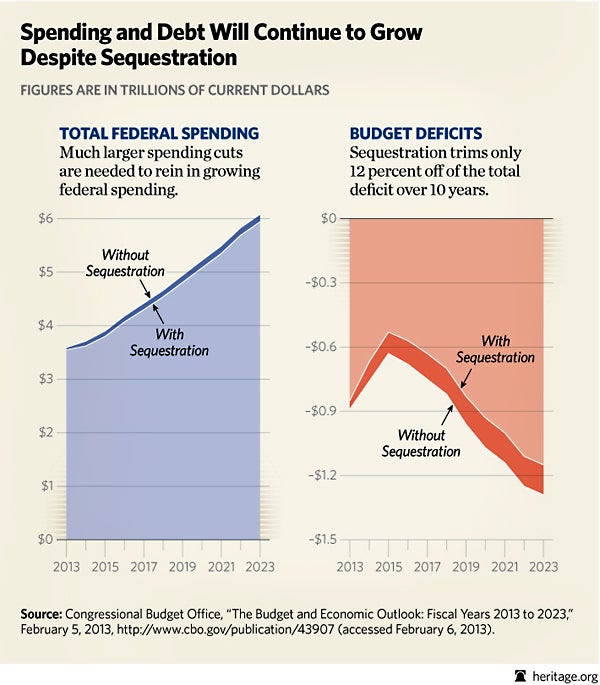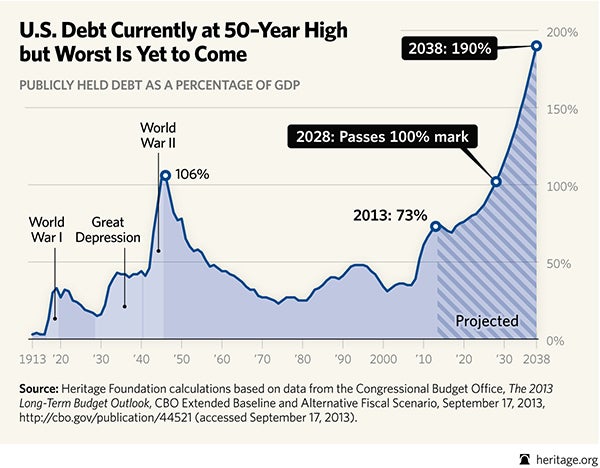While much of the debate over government funding has centered around funding for the President’s unworkable health care law, Democrats’ appetite for more unnecessary federal spending has gotten much less attention.
Democrats in the House are demanding more discretionary spending and have openly stated that they would prefer a government shutdown over not getting higher spending.
Their main target: getting rid of sequestration—which pushes discretionary spending down to $967 billion in 2014. Instead, House Democrats want to spend well over a trillion dollars—$1.058 trillion, to be exact—on discretionary programs next fiscal year.
For taxpayers, this would mean an additional $91 billion in deficit spending along with a cancellation of some of the savings put in place to offset a $1.2 trillion increase in the debt limit from 2011. Adieu, Budget Control Act.
House Minority Leader Nancy Pelosi (D–CA) says House Democrats are apparently ready “almost across the board” to oppose any bill containing sequestration-level spending—even if it means a federal shutdown. Representative Jim Moran (D–VA) emphasized that “a government shutdown is better than reverting to long-term sequester-level funding.”
At the forefront of the movement is House Democratic Whip Steny Hoyer (D–MD), who openly stated that he would oppose any bill that would set spending at the sequestration level of $986 billion. For those counting, that’s $19 billion above the sequestration-level spending allowance. But it’s apparently not enough for liberals’ bottomless appetites.
Are the domestic cuts really that bad to warrant such an extreme stance? Sequestration cuts reduce federal spending by a paltry 2.5 percent over the next 10 years. But eliminating them would drive up deficits by 12 percent.
Despite the Obama Administration’s warnings in 2011 that the cuts would halt vital government services and wreak havoc on our economy, most of those dire predictions never came to pass. Indeed, the domestic spending cuts allowed for more job creation in the private sector while cutting some of the fat off the federal government.
However, sequestration falls disproportionally on national defense, undermining U.S. national security. Fixes are readily available, as explained by Heritage’s Patrick Louis Knudsen, who identified $42 billion in non-security spending that could be eliminated.
But some lawmakers simply cannot stop spending. As Senator Charles Schumer (D–NY) stated, “We’re going to try to get as high a [spending] level as we can get.… We think it should be higher than the [$986 billion] level, absolutely. But we’re not going to have a negotiation that deals with extraneous issues,” he added. “We’re going to negotiate to get as a high a level as possible.”
As high as possible. No wonder the U.S. is heading straight for a debt crisis.
Michael Sargent is currently a member of the Young Leaders Program at The Heritage Foundation. For more information on interning at Heritage, please click here.































